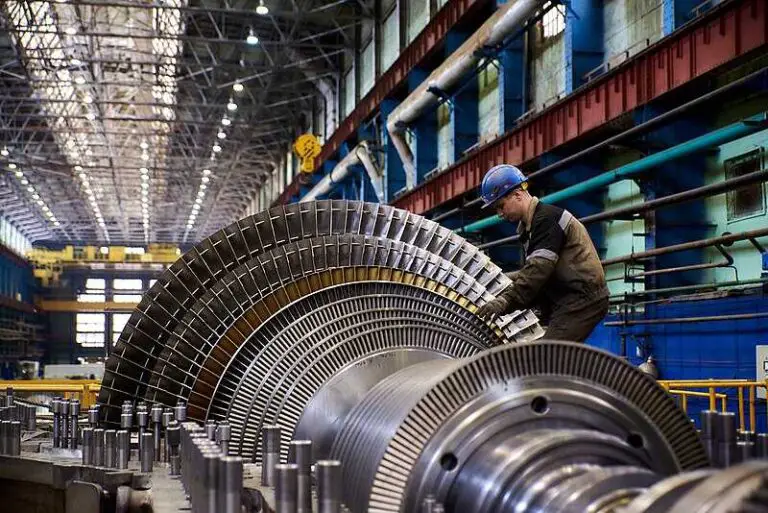Sustainable Manufacturing Definition, Features and Benefits Explained
Sustainable manufacturing is the development of products using materials, equipment and techniques that have minimal environmental impact. This article discusses sustainable manufacturing definition, features and benefits, as outlined below;
-Sustainable Manufacturing Definition: 5 Ways to Define Sustainable Manufacturing
-Sustainable Manufacturing Features
-Benefits of Sustainable Manufacturing
-Sustainable Manufacturing Process
Sustainable Manufacturing Definition: 5 Ways to Define Sustainable Manufacturing
Sustainable manufacturing is an approach to raw material-conversion and product design that seeks to achieve sustainability in utilization of material and energy resources, during the process [3].
The above is a basic definition of sustainable manufacturing that highlights its most essential attributes.
Below, the benefits of sustainable manufacturing are used to outline an alternative sustainable manufacturing definition;
Sustainable manufacturing is a type of manufacturing that is in line with the dictates of sustainable development, and which can help mitigate environmental impacts, while optimizing energy efficiency and supply chain resilience, all of which lead to long-term economic growth [2].
These benefits can be used to identify examples of sustainable manufacturing, some of which are mentioned in the sustainable manufacturing definition below;
Sustainable manufacturing is a production system that focuses on eco-friendly materials and methods, with examples such as; chemical manufacturing with waste minimization, renewable energy-based material conversion, conservative smart phone manufacturing, organic food product manufacturing, and recycled material usage.
Another important consideration is the practices of sustainable manufacturing. Some of them are mentioned in the sustainable farming definition below;
Sustainable manufacturing is a type of manufacturing that involves practices like; sustainable raw material selection, energy efficiency improvement, product recycling, renewable energy utilization, and effluent treatment, which are all geared toward ecosystem protection and socioeconomic sustainability.

Lastly, features of sustainable manufacturing are highlighted in the sustainable manufacturing definition, as follows;
Sustainable manufacturing is the processing of raw materials and design of products in such a manner that is characterized by; material conservation, energy conservation, waste minimization, sustainable selection, economic viability, and process optimization among others.
Sustainable Manufacturing Features
Sustainable manufacturing features are;
1). Material conservation
2). Sustainable selection
3). Economic viability
4). Process optimization
5). Use of sustainable materials and methods
6). Regulatory compliance
7). Eco-compatibility
Benefits of Sustainable Manufacturing
Benefit of sustainable manufacturing are;
1). Impact mitigation
2). Supply chain resilience
3). Waste minimization
4). Short-term production continuity
5). Long-term economic profitability
6). Efficiency improvement
Sustainable Manufacturing Process
Sustainable manufacturing process refers to the sequential procedures, methods, techniques and tools that are used to make manufacturing sustainable.
Phases that make up the sustainable manufacturing process are;
1). Material selection
2). Material processing
3). Product design
4). Product development
5). Waste treatment and recycling
Elements of sustainable manufacturing process [1] are;
1). Environmental impact
2). Personnel health
3). Manufacturing cost
4). Operational safety
5). Waste management
6). Energy consumption
Conclusion
Sustainable manufacturing is a type of manufacturing whose objectives are to conserve resources and protect the ecosystem while still developing high-quality products.
Sustainable manufacturing features are; material conversion, sustainable selection, economic viability, process optimization, use of sustainable materials/methods, regulatory compliance, and eco-compatibility.
Benefits of sustainable manufacturing are; impact mitigation, supply chain resilience, waste minimization, short-term production continuity, long-term economic profitability, and efficiency improvement.
References
1). Haapala, K. R.; Zhao, F.; Camelio, J.; Sutherland, J. W.; Sutherland, J. W.; Skerlos, S. J.; Dornfeld, D. A.; Jawahir, I. S.; Zhang, H-C.- Clarens, A. F. (2014). “Haapala etal MSEC2011-50300 MEDLCEpaper final.” Available at: https://www.researchgate.net/publication/263543140_Haapala_etal_MSEC2011-50300_MEDLCEpaper_final. (Accessed 27 December 2022).
2). Khan, S. A. R.; Hassan, S.; Khan, M. A.; Khan, M. R.; Godil, D. I.; Awan, M. T. (2022). “Nexuses Between Energy Efficiency, Renewable Energy Consumption, Foreign Direct Investment, Energy Consumption, Global Trade, Logistics and Manufacturing Industries of Emerging Economies: In the Era of COVID-19 Pandemic.” Frontiers in Environmental Science 10:880200. Available at: https://doi.org/10.3389/fenvs.2022.880200. (Accessed 27 December 2022).
3). Kishawy, H. A.; Hegab, H.; Saad, E. (2018). “Design for Sustainable Manufacturing: Approach, Implementation, and Assessment.” Sustainability 10(10):3604. Available at: https://doi.org/10.3390/su10103604. (Accessed 29 December 2022).
